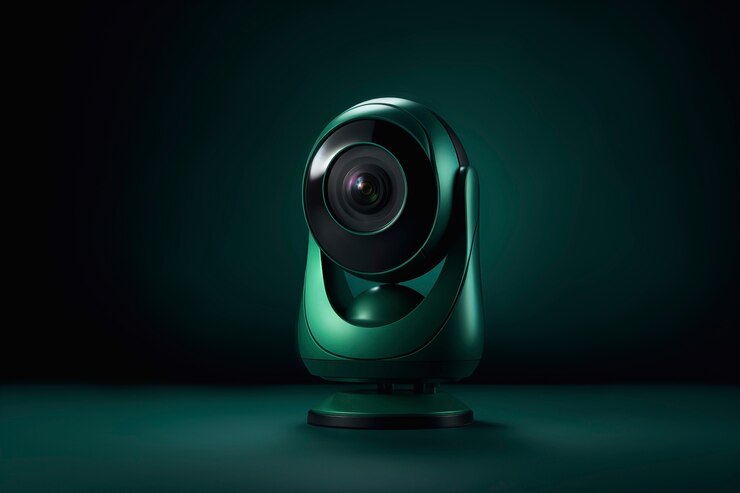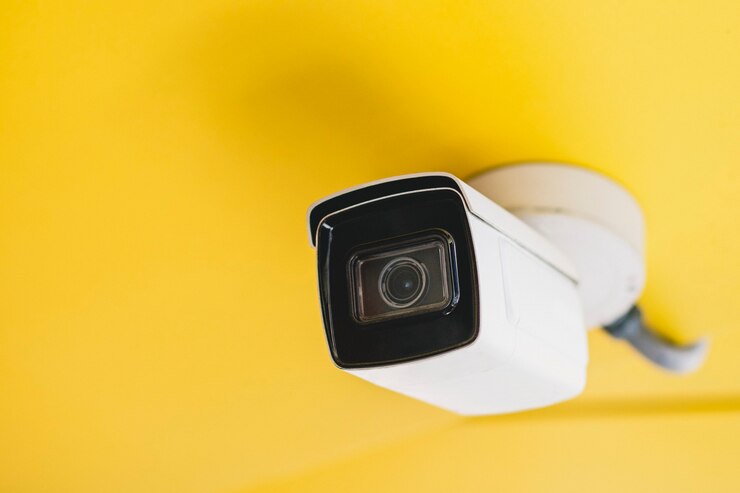The aim of CCTV is to monitor and record activities in a specific area for security and surveillance purposes. CCTV helps in deterring crime, providing evidence for investigations, and improving overall safety and security.
CCTV, or closed-circuit television, serves as a valuable tool for monitoring and recording activities within a specific area. Its primary aim is to enhance security and surveillance by providing a constant visual record of events, ensuring the safety of people and property.
By deterring criminal activity and assisting in investigations, CCTV plays a crucial role in maintaining public safety and protecting against potential threats. Additionally, it offers peace of mind by providing real-time monitoring and evidence, making it an essential component of modern security systems. Integrating CCTV into various settings, such as homes, businesses, and public spaces, serves as a proactive measure to ensure safety and deter unlawful behavior.

Enhancing Security Measures
The aim of CCTV systems is to enhance security measures by providing advanced surveillance and monitoring capabilities. With the integration of modern technology, these systems play a pivotal role in crime prevention, deterrence of criminal activities, and maintaining a secure environment.
Crime Prevention
CCTV systems act as a powerful tool in preventing various forms of criminal activities such as theft, vandalism, and unauthorized entry. By continuously monitoring the premises, these systems create a deterrent for potential offenders and significantly reduce the opportunity for crimes to occur.
Deterrence Of Criminal Activities
The presence of CCTV cameras acts as a deterrent to criminal activities. Criminals are less likely to engage in illegal actions when they know that their activities are being closely monitored and recorded. This creates a safer environment for individuals and maintains a sense of vigilance in potential perpetrators.
Surveillance And Monitoring
CCTV systems provide continuous surveillance and monitoring of areas that are susceptible to security threats. This includes public spaces, commercial establishments, and residential properties. The ability to monitor these areas in real-time and review recorded footage allows for prompt actions to be taken in response to security incidents.
Safeguarding Property And Assets
When it comes to the aim of CCTV systems, safeguarding property and assets is a pivotal aspect. These systems play a crucial role in deterring potential threats and protecting valuable belongings. Let’s delve into how CCTV contributes to safeguarding property and assets.
Theft Prevention
CCTV cameras act as a powerful deterrent against theft and unauthorized access. The presence of surveillance cameras alone can discourage malicious intent, effectively preventing theft and criminal activities. Additionally, the footage captured by CCTV can serve as concrete evidence in the event of a theft, aiding in the identification and apprehension of perpetrators.
Protection Of Valuables
By constantly monitoring and recording activities, CCTV systems help in safeguarding valuable assets such as jewelry, electronics, and other high-worth items. Whether installed in residential, commercial, or industrial settings, CCTV ensures that your valuables are under constant vigilance, minimizing the risk of theft and damage.
Ensuring Workplace Safety
Implementing CCTV in workplaces enhances safety measures by providing real-time monitoring of activities, preventing accidents, and identifying potential hazards. By keeping a watchful eye on the premises, CCTV helps in maintaining a secure and hazard-free environment for employees and visitors.
Ensuring Public Safety
Ensuring public safety is a top priority for governments, businesses, and communities around the world. Closed-circuit television (CCTV) systems play a crucial role in maintaining public safety by providing monitoring, surveillance, and response capabilities. From crowd control and emergency response support to traffic monitoring and regulation, CCTV is a powerful tool for enhancing security and safety in public spaces.
Crowd Control And Management
CCTV systems are essential for crowd control and management in public areas such as stadiums, concert venues, and city centers. By monitoring and analyzing crowd movements, authorities can identify potential safety hazards and take preventive measures to ensure the well-being of the public. Additionally, in the event of a disturbance or emergency situation, CCTV footage can provide valuable insights for law enforcement and security personnel to take appropriate action.
Emergency Response Support
CCTV cameras serve as invaluable tools for emergency response support. In the event of a natural disaster, terrorist attack, or medical emergency, real-time video surveillance enables authorities to assess the situation and deploy resources effectively. Furthermore, CCTV footage can be used to investigate incidents, identify perpetrators, and support the legal process in holding offenders accountable.
Traffic Monitoring And Regulation
Efficient traffic management is essential for public safety on roads and highways. CCTV systems facilitate real-time monitoring of traffic flow, congestion, and compliance with traffic regulations. By leveraging advanced video analytics, authorities can detect accidents, congestion, and reckless driving behaviors, enabling them to respond promptly and ensure the smooth and safe movement of vehicles and pedestrians.
Improving Incident Investigation
CCTV systems play a vital role in improving incident investigation by providing crucial evidence that aids law enforcement agencies, security teams, and legal professionals in resolving criminal and security-related incidents effectively. The aim of CCTV aligns with the objective of enhancing incident investigation through various means, such as evidence collection, identification of suspects, and legal and judicial support.
Evidence Collection
CCTV cameras serve as a fundamental tool for collecting evidence of incidents, accidents, or crimes that occur in a specific area. These cameras record ongoing activities, which can be later reviewed to understand the sequence of events leading to an incident. The footage captured by CCTV systems can serve as crucial evidence in investigations, assisting law enforcement in understanding the context and timeline of an incident.
Identification Of Suspects
CCTV footage enables authorities to identify suspects involved in criminal activities or security breaches. By capturing the visual data of individuals present at the scene of an incident, CCTV systems aid in the process of identifying and tracking down potential suspects. This identification can significantly contribute to the successful apprehension and prosecution of individuals involved in unlawful activities.
Legal And Judicial Support
CCTV recordings serve as crucial supporting evidence in legal proceedings and judicial processes. The footage obtained from CCTV systems can be presented in court to corroborate witness testimonies or provide visual documentation of the events under scrutiny. This compelling evidence derived from CCTV helps in substantiating legal claims, leading to more effective and fair adjudication of cases.
Frequently Asked Questions On What Is The Aim Of CCTV?
What Is The Main Aim Of CCTV Systems?
CCTV systems are primarily used for surveillance and security purposes, helping to deter crime and provide evidence in case of an incident. They aim to monitor and record activities in an area to enhance safety and security.
How Do CCTV Cameras Enhance Safety And Security?
CCTV cameras act as a deterrent to potential criminals, as they are less likely to commit a crime when under surveillance. These cameras also provide real-time monitoring and evidence in case of any unlawful activities, enhancing safety and security in the monitored area.
What Are The Benefits Of Using CCTV For Businesses?
CCTV systems offer numerous advantages to businesses, including theft prevention, employee accountability, and enhanced overall security. They also help prevent fraudulent claims, monitor operations, and improve overall safety for customers and staff.
Conclusion
As technology advances, the aim of CCTV remains focused on providing security and surveillance. By enhancing safety measures, deterring criminal activities, and monitoring public spaces, CCTV plays a crucial role in maintaining security. With its ability to provide evidence and aid in investigations, the importance of CCTV in safeguarding individuals and properties is undeniable.
